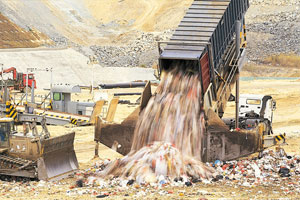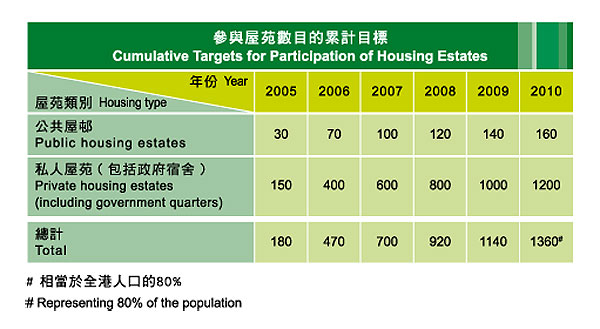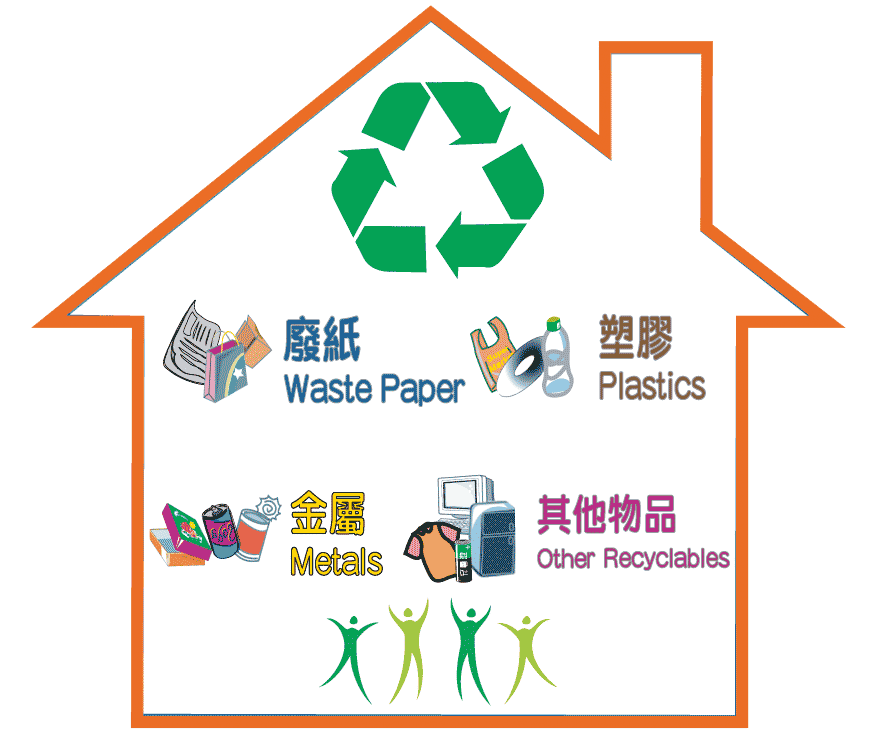| |
4.1 Our
Goals
 |
The Programme on Source Separation of
Domestic Waste was established by the Environmental Protection
Department (EPD) to recover more domestic waste for re-use
and recycling, with the aim of reducing waste loads and extending
the life of existing landfills. Some success has already been
achieved in domestic waste reduction, with a cumulative decrease
of 13% since 2000 and a 3% decrease in 2005 alone. However,
there is still much room for improvement.
About 40% of municipal solid waste is recovered each year,
but most of that comes from the commercial and industrial
sectors, not households. In 2005 only 16% of domestic waste
was recovered. We believe this can be improved substantially
and has set the following targets:
|
-
To have 80% of Hong Kong's
population recovering their waste for re-use and recycling by
2010 through source separation of domestic waste.
-
To increase domestic
waste recovery to 26% by 2012 through source separation of domestic
waste and other measures set out in the "Policy Framework
for the Management of Municipal Solid Waste in Hong Kong (2005-2014)"
issued in December 2005.
4.2 How the Programme Works
The Programme on Source Separation
of Domestic Waste was launched territory-wide in January 2005
to expand the types of waste collected for re-use and recycling,
and to make it as easy as possible for every household in
Hong Kong to participate. By 2010, more than 1,300 housing
estates representing 80% of the population hopefully will
have joined the programme. |
|


|
Each participating housing estate / building
adopts a waste separation and recovery system adapted to their
physical constraints and other characteristics. They can install
suitable waste separation facilities at convenient locations,
such as refuse rooms and staircase landings on each floor.
They can also expand the types of recyclables accepted beyond
waste paper, aluminium cans and plastic bottles, to include
such everyday items as plastic shopping bags, compact discs
and metal biscuit tins.
|
|
|